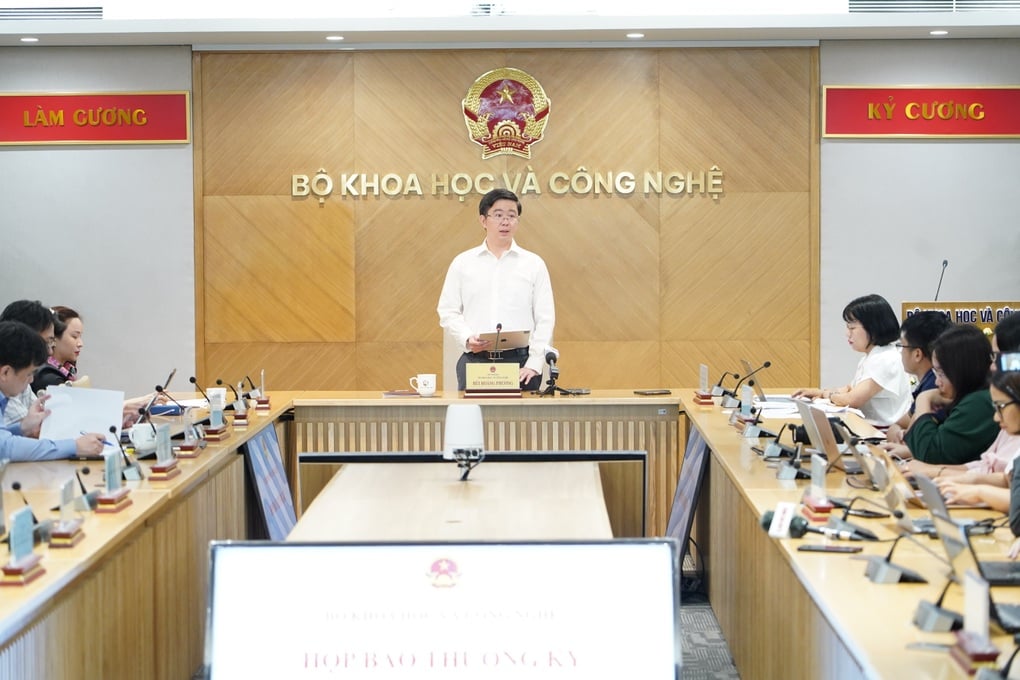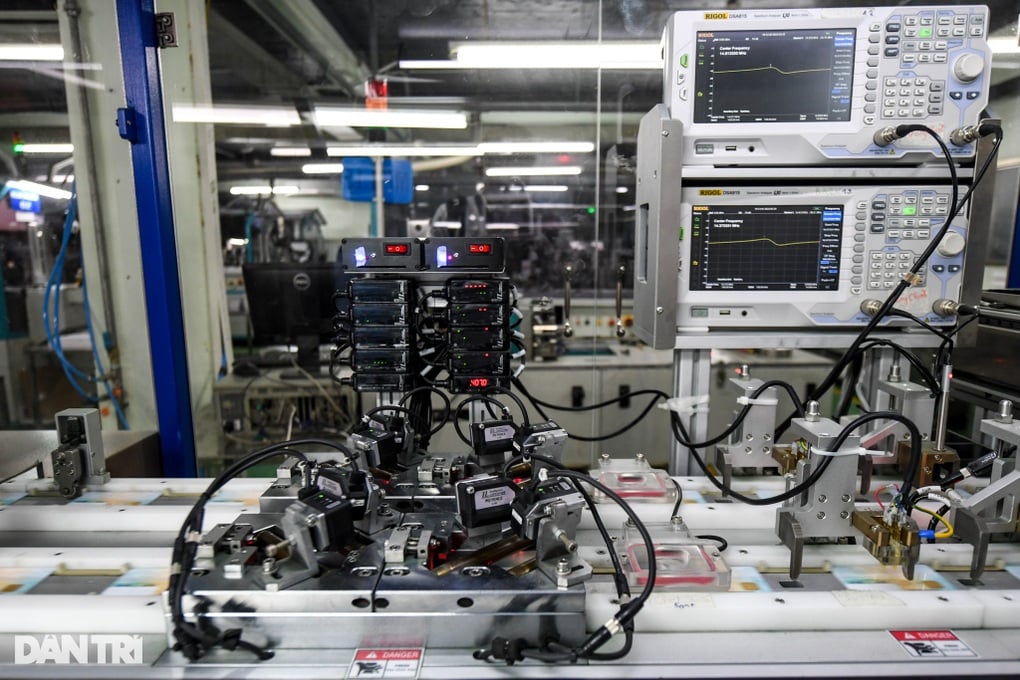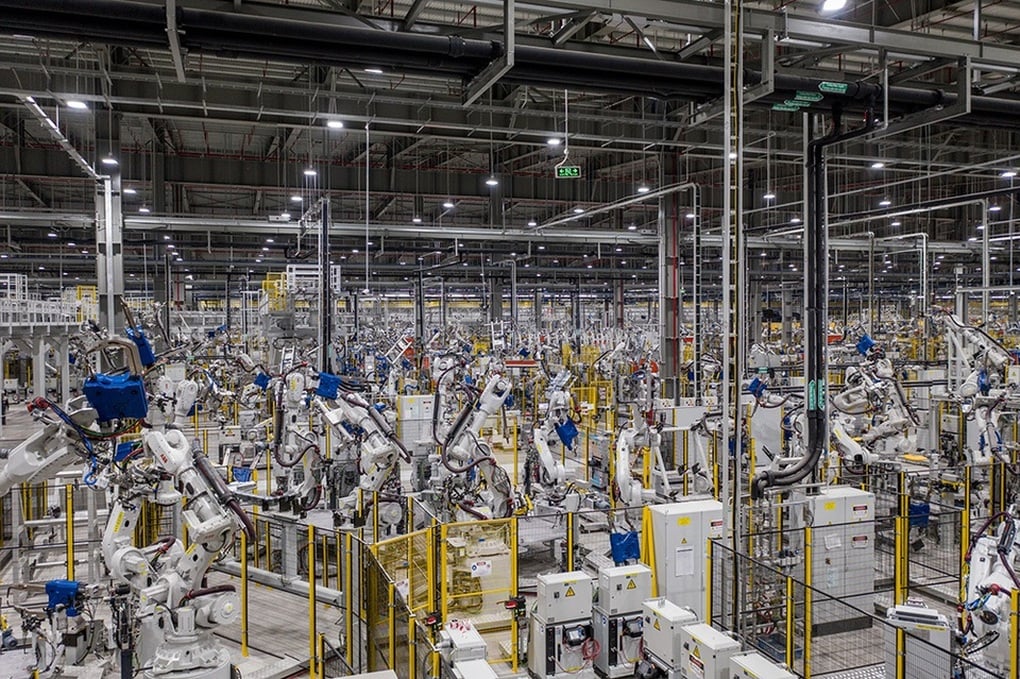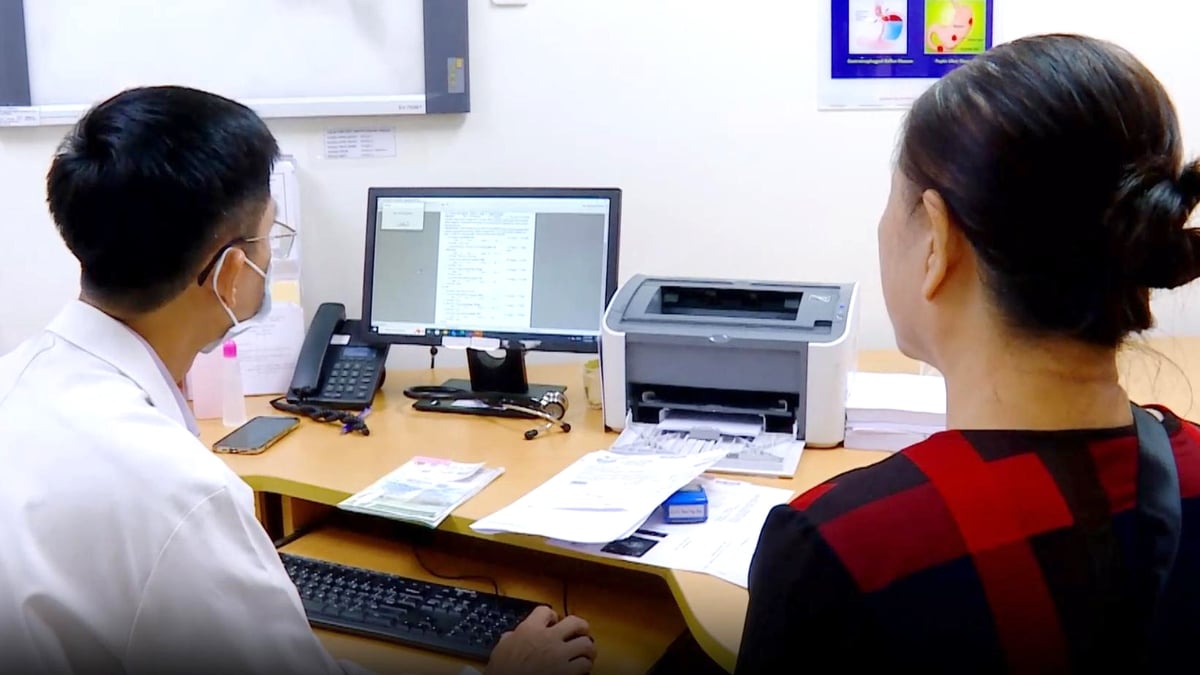The Law on Digital Technology Industry clearly affirms the principle of "self-reliance and self-reliance in digital technology and strategic digital technology " as the foundation for the development of the digital technology industry (Photo: Manh Quan).
On the afternoon of June 27, the Ministry of Science and Technology (MOST) held a regular press conference, announcing the National Assembly's official approval of five important laws, which are expected to create a solid foundation for the development of science, technology and innovation in Vietnam.
Deputy Minister of Science and Technology Bui Hoang Phuong, chairing the press conference, emphasized the significance of the passage of these five laws, considering this an important milestone after 4 months of consolidation of the Ministry of Science and Technology.
These laws have been elaborately developed, updated and adjusted in accordance with the spirit of new resolutions and policies of the Party, State and Government, especially Resolution 57, to remove difficulties and obstacles in the field of science and technology.
The five laws passed include: Law on Science, Technology and Innovation, Law on Digital Technology Industry, Law on Atomic Energy (amended), Law on Amending and Supplementing a Number of Articles of the Law on Technical Standards and Regulations and Law on Amending and Supplementing a Number of Articles of the Law on Product and Goods Quality.
Deputy Minister Bui Hoang Phuong chaired a regular press conference (Photo: Ministry of Science and Technology).
Strategic move towards global digital technology hub
Mr. Nguyen Khac Lich, Director of the Department of Information Technology Industry, said that the Law on Digital Technology Industry was passed by the 15th National Assembly on June 14 and will take effect from January 1, 2026. This is a historic milestone, marking a strategic step towards making Vietnam a global digital technology center.
This law institutionalizes important resolutions of the Central Committee and the Politburo, creating a strong legal corridor to promote innovation, enhance competitiveness and develop the digital economy.
The law comprehensively regulates the fields of digital technology industry, semiconductor industry, artificial intelligence (AI) and digital assets, creating a synchronous foundation for key digital technology industries, helping Vietnam become a pioneer country in building a transparent legal framework for the digital technology industry, ensuring network safety and security.
Notably, the law provides special incentives for key projects in the fields of digital technology, semiconductors, AI and data centers. Specifically, projects with capital of VND6,000 billion or more will enjoy a 5% tax rate for 37 years, a 6-year tax exemption, a 50% tax reduction for the next 13 years, and a land rent exemption for up to 22 years and a 75% reduction for the remaining years.
The Law also affirms the principle of autonomy and self-reliance in strategic digital technology, prioritizing research, design, and production of domestic digital technology products and services, and prioritizing the use of Vietnamese digital technology products in state budget projects.
Regarding human resources, the law focuses on developing digital technology human resources through training support policies, scholarships, and preferential credit. High-quality human resources are exempted from personal income tax for 5 years, foreign experts are granted 5-year visas with competitive salary and bonus mechanisms.
In particular, the law sets a target of reaching 150,000 digital technology industrial enterprises by 2035, building a state ordering mechanism for key digital technology projects and comprehensively supporting small and medium-sized enterprises.
The law encourages environmentally friendly digital technology products and services, promotes reuse and recycling, and builds a digital technology ecosystem for cooperation between businesses, prioritizing investment in essential digital infrastructure such as data centers, AI, and 5G networks.
For the first time, the semiconductor industry is legalized with a strategy for developing specialized chips and linking the global supply chain. The law also establishes a legal framework for AI with human-centered principles, ensuring transparency, safety and risk control.
Finally, the law defines the legal framework for digital assets including virtual assets and crypto assets, ensuring ownership, transactions and user protection, and encouraging the development of blockchain technology.
Mr. Nguyen Khac Lich concluded that the Law on Digital Technology Industry is not only a specialized law but also a strong institutional lever, helping Vietnam create a competitive advantage and affirm its position as a global digital technology center.
Manifesto for a knowledge-based nation
Regarding the Law on Science, Technology and Innovation, Mr. Nguyen Phu Hung, Director of the Department of Science, Technology and Innovation, affirmed that the law is a manifesto and a heartbeat of Vietnam in building a strong nation based on knowledge, science, technology and innovation.
The law brings many strong new points, demonstrating fundamental developments in thinking and development orientation. Accordingly, science and technology are the key factor, the driving force to enhance national competitiveness, develop socio-economy and ensure national security and defense.
Science and technology are the key factor and driving force to improve national competitiveness (Photo: DT).
The Law on Science, Technology and Innovation brings about a fundamental change in development thinking by putting innovation into law for the first time and putting it on par with science and technology.
The focus of state management is also shifted from controlling processes and inputs to managing results and output efficiency, accepting risks. The law establishes a clear direction on the transition from a country that mainly uses technology to mastering strategic technology, focusing investment on these tasks.
At the same time, the law also takes the product-oriented market as the driving force, orients technology development and identifies related research problems, more closely linked to practical needs. Higher education institutions will be invested in to develop into centers for scientific research, technology development and innovation, forming high-level research centers associated with high-quality human resource training.
In particular, for the first time, the law devotes a chapter to regulating policies to support research and development and innovation activities in enterprises, encouraging enterprises to invest heavily in research and development (R&D).
The law also aims to balance research in natural sciences and social sciences, encourage multidisciplinary collaboration, and clearly distinguish approaches between scientific research and technology development, with a greater focus on technology development for rapid impact.
The science and technology ecosystem is oriented to develop completely and in balance, including institutions, technical infrastructure, human resources and entities such as enterprises, research institutes, and creative startup centers. Finally, the law implements comprehensive digital transformation in science and technology activities and science and technology management, using a national digital platform, shifting from a pre-control to a post-control model and cutting administrative procedures.
Mr. Nguyen Phu Hung expressed his hope that the strong changes in the Law on Science, Technology and Innovation will create a big push, bringing Vietnam to new heights and worthy of its potential.
In addition, the Ministry of Science and Technology also said that it will continue to develop four other important laws from now until October, including the Law on Digital Transformation, the Law on High Technology, the Law on Intellectual Property and the Law on Technology Transfer, to basically complete the legal corridor for science, technology and innovation activities.
Source: https://dantri.com.vn/cong-nghe/thuc-day-make-in-vietnam-du-an-tu-6000-ty-duoc-mien-thue-6-nam-20250627162253240.htm



























































![[Maritime News] Container shipping faces overcapacity that will last until 2028](https://vphoto.vietnam.vn/thumb/402x226/vietnam/resource/IMAGE/2025/7/30/6d35cbc6b0f643fd97f8aa2e9bc87aea)













































Comment (0)